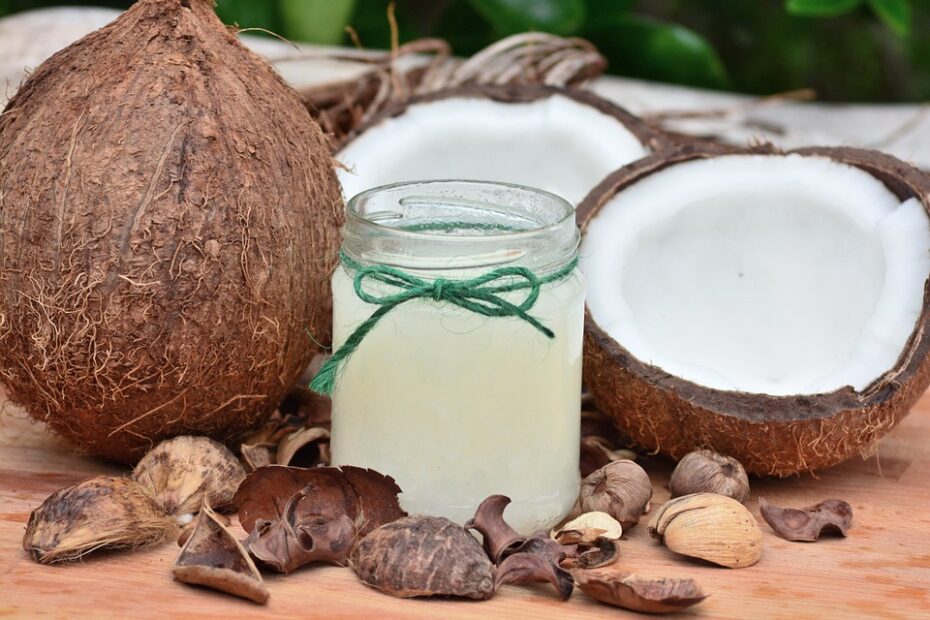gastric sleeve Malabsorption: Understanding the Impact on Nutrient Absorption
Gastric sleeve surgery, also known as sleeve gastrectomy, is a popular and effective weight loss procedure. It involves the removal of a significant portion of the stomach, resulting in a smaller, sleeve-shaped stomach. This surgery not only restricts the amount of food that can be consumed but also has an impact on nutrient absorption. In this article, we will delve into the concept of gastric sleeve malabsorption, its effects on nutrient absorption, and the ways to mitigate its impact.
1. What is Gastric Sleeve Malabsorption?
Gastric sleeve malabsorption refers to the reduced ability of the body to absorb essential nutrients after undergoing a sleeve gastrectomy. This occurs primarily due to the alteration of the digestive system’s anatomy during the surgery. The removal of a significant portion of the stomach affects the production and secretion of digestive enzymes, leading to difficulties in breaking down and absorbing nutrients from food.
2. Impact on Nutrient Absorption
The reduced stomach size after gastric sleeve surgery limits the amount of food that can be consumed at a time. This restriction, coupled with the altered anatomy, affects the absorption of various essential nutrients, including proteins, vitamins, and minerals. The Most significant impact is seen on fat absorption, as the reduced stomach size results in decreased production of bile acids, necessary for fat breakdown and absorption.
3. Managing Nutrient Deficiencies
To mitigate the risk of nutrient deficiencies post gastric sleeve surgery, it is crucial to adopt a well-balanced and nutrient-dense diet. This includes consuming lean proteins, such as poultry, fish, and legumes, to ensure an adequate intake of amino acids. Additionally, incorporating a variety of fruits and vegetables rich in vitamins and minerals is essential. Regular monitoring of nutrient levels and appropriate supplementation, as recommended by healthcare professionals, can also help manage deficiencies.
4. Avoiding Malabsorption-Related Complications
While gastric sleeve malabsorption can pose challenges, there are steps that can be taken to avoid complications. Proper patient education regarding dietary guidelines and portion control is crucial. It is essential to eat slowly, chew food thoroughly, and consume smaller, more frequent meals to aid digestion and nutrient absorption. Avoiding high-fat and high-sugar foods is also recommended, as these can exacerbate malabsorption issues.
5. The Importance of Long-Term Follow-Up
Long-term follow-up after gastric sleeve surgery is imperative to monitor nutrient levels, identify deficiencies, and adjust dietary and supplementation strategies accordingly. Regular check-ups with healthcare professionals, including dietitians and physicians, can help ensure optimal nutrient absorption and overall health. Additionally, maintaining a healthy lifestyle, including regular exercise and stress management, can contribute to improved nutrient absorption and long-term weight loss success.
In conclusion, gastric sleeve malabsorption is a significant consideration for individuals undergoing sleeve gastrectomy. Understanding the impact on nutrient absorption and implementing appropriate dietary and lifestyle strategies is essential to mitigate deficiencies and avoid complications. Long-term follow-up and collaboration with healthcare professionals are vital for sustained success and overall well-being after gastric sleeve surgery.
Frequently Requested Questions About Gastric Sleeve Malabsorption
What is Gastric Sleeve Malabsorption?
Gastric Sleeve Malabsorption refers to a condition that can occur after undergoing gastric sleeve surgery, also known as sleeve gastrectomy. This surgical procedure involves the removal of a large portion of the stomach, leaving behind a smaller sleeve-shaped stomach. While it is primarily performed to aid weight loss, some individuals may experience malabsorption as a result of this procedure.
Important information:
1. Gastric sleeve malabsorption is a potential complication of gastric sleeve surgery.
2. Malabsorption occurs when the body is unable to absorb essential nutrients from food.
3. This condition can lead to nutritional deficiencies if not properly managed.
What causes Gastric Sleeve Malabsorption?
Gastric Sleeve Malabsorption can be caused by several factors, including anatomical changes in the digestive system and alterations in the digestive process. After gastric sleeve surgery, the reduced stomach size and the removal of certain sections of the stomach can affect the normal absorption of nutrients.
Important information:
1. Gastric sleeve surgery alters the digestive system, potentially leading to malabsorption.
2. Changes in stomach size and removal of portions can impact the absorption of nutrients.
3. The reduced capacity of the stomach may limit the time available for proper digestion and absorption.
What are the symptoms of Gastric Sleeve Malabsorption?
Symptoms of Gastric Sleeve Malabsorption can vary from person to person, and it is important to be aware of the signs that may indicate this condition. Some common symptoms include chronic diarrhea, bloating, gas, nutrient deficiencies, unexplained weight loss, fatigue, and weakness.
Important information:
1. Chronic diarrhea, bloating, and gas are common symptoms of gastric sleeve malabsorption.
2. Nutrient deficiencies can occur due to inadequate absorption, leading to various health issues.
3. Unexplained weight loss, fatigue, and weakness may also be indicators of this condition.
How is Gastric Sleeve Malabsorption diagnosed?
Diagnosing Gastric Sleeve Malabsorption typically involves a thorough evaluation of the patient’s medical history, a physical examination, and various diagnostic tests. These tests may include blood tests to check for nutrient deficiencies, stool tests to assess malabsorption, imaging studies to evaluate the digestive system, and endoscopic procedures to examine the stomach and intestines.
Important information:
1. Medical history, physical examination, and diagnostic tests are used to diagnose gastric sleeve malabsorption.
2. Blood tests can identify nutrient deficiencies associated with malabsorption.
3. Stool tests and imaging studies help evaluate the extent of malabsorption and assess the digestive system.
How is Gastric Sleeve Malabsorption treated?
Treating Gastric Sleeve Malabsorption involves a multidisciplinary approach aimed at managing the condition and preventing further complications. Treatment options may include dietary modifications, nutritional supplementation, medications to aid digestion, lifestyle changes, and close monitoring by healthcare professionals.
Important information:
1. Treatment of gastric sleeve malabsorption requires a multidisciplinary approach.
2. Dietary modifications and nutritional supplementation are common interventions.
3. Medications may be prescribed to improve digestion and absorption, and lifestyle changes are often recommended.
Introduction to Gastric Sleeve Malabsorption
Gastric sleeve malabsorption is a surgical procedure that involves the removal of a large portion of the stomach and reshaping it into a smaller, sleeve-shaped pouch. This procedure aims to restrict the amount of food that a person can consume, leading to weight loss. While gastric sleeve surgery has gained popularity as an effective weight loss solution, there are several common misconceptions associated with the malabsorption aspect of this procedure.
Misconception 1: Gastric Sleeve Surgery Leads to Severe Nutrient Deficiencies
One common misconception surrounding gastric sleeve malabsorption is that it inevitably leads to severe nutrient deficiencies. While it is true that this procedure can affect the absorption of certain nutrients, such as vitamins and minerals, it does not necessarily result in severe deficiencies. With proper dietary guidance and regular monitoring of nutrient levels, individuals who have undergone gastric sleeve surgery can meet their nutritional requirements and prevent deficiencies.
Misconception 2: Gastric Sleeve Surgery Causes Permanent Malabsorption
Another misconception is that gastric sleeve surgery causes permanent malabsorption of nutrients. In reality, the malabsorption aspect of this procedure is relatively mild compared to other weight loss surgeries, such as gastric bypass. The primary mechanism of weight loss in gastric sleeve surgery is through restriction, meaning that the reduced stomach capacity limits the amount of food that can be consumed. While there is some malabsorption of nutrients due to the reduced surface area of the stomach, it is not permanent, and the body adapts over time to optimize nutrient absorption.
Misconception 3: Gastric Sleeve Surgery Leads to Protein Malnutrition
A common misconception is that gastric sleeve surgery leads to protein malnutrition. While it is true that protein intake is crucial after surgery to promote healing and preserve muscle mass, it does not necessarily result in malnutrition. With proper dietary counseling, individuals can meet their protein requirements through lean sources such as poultry, fish, legumes, and dairy products. Protein supplementation may also be recommended to ensure adequate intake, especially during the initial stages of recovery.
Misconception 4: Gastric Sleeve Surgery Causes Permanent vitamin and Mineral Deficiencies
There is a misconception that gastric sleeve surgery causes permanent vitamin and mineral deficiencies. While the procedure can affect the absorption of certain vitamins and minerals, it does not automatically result in permanent deficiencies. Adequate nutrient intake can be achieved through a well-balanced diet and nutritional supplementation when necessary. Regular monitoring of nutrient levels and working closely with healthcare professionals can help identify and address any deficiencies that may arise.
Misconception 5: Gastric Sleeve Surgery Leads to Malabsorption of All Nutrients
A common misconception is that gastric sleeve surgery leads to malabsorption of all nutrients. In reality, the malabsorption aspect of this procedure primarily affects certain vitamins and minerals, while overall nutrient absorption remains relatively intact. The reduced stomach size and altered digestive process may impact the absorption of fat-soluble vitamins (A, D, E, and K) and certain minerals like iron and calcium. However, with proper dietary management and supplementation if necessary, individuals can maintain adequate nutrient absorption and prevent major deficiencies.
In conclusion, gastric sleeve malabsorption is often surrounded by misconceptions. While there can be some impact on nutrient absorption, these misconceptions should not overshadow the potential benefits of this weight loss surgery. With proper dietary guidance, regular monitoring, and appropriate supplementation, individuals who have undergone gastric sleeve surgery can achieve long-term weight loss success while maintaining adequate nutrient levels. It is essential to consult with healthcare professionals and registered dietitians to ensure personalized care and optimize outcomes after gastric sleeve surgery.
Gastric Sleeve Malabsorption
#Gastric #sleeve #malabsorption #condition #occur #gastric #sleeve #surgery #sleeve #gastrectomy #surgery #large #portion #stomach #removed #leaving #smaller #bananashaped #sleeve #limits #amount #food #consumed #helps #weight #loss.br

